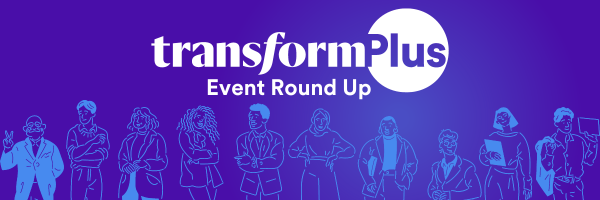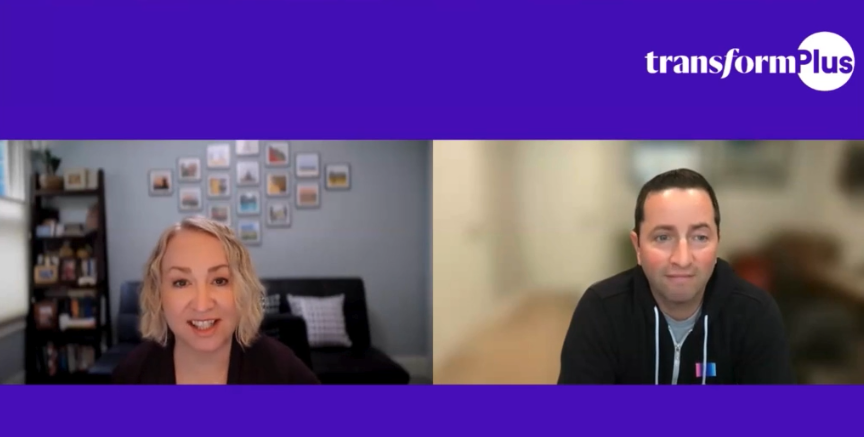
As part of the Transform Plus Event Series, Samara Jaffe, Co-Founder and GM, of Transform, hosted a conversation with David Landman, Ph.D., where he shared his insights and perspectives on becoming a startup advisor – getting started, the importance of community, finding your unique value proposition as well as the ins and outs of negotiating terms, timelines and compensation options.
David has 20+ years of experience in HR, with the majority of his career at Goldman Sachs, where he focused on driving business performance by enabling people to be their best selves at work. Humanity, connection, and fulfillment in the workplace have inspired him throughout his career as a practitioner and now as an advisor. He is passionate about supporting founders, investors, and innovators who are redefining what it means to thrive at work through technology and thought leadership solutions.
David shared that as an advisor, you act as a sounding board offering advice and perspective – whether it be to a founder, VC, practitioner, or other – as opposed to actually doing the work. Advisors have the opportunity to create their path and spend the days how they choose, both in who they spend it with and how much time they allocate.
Key takeaways from the conversation:
Getting Started – Say “Yes” to Everything
If you are interested and new to the startup advising world, step one is to reach out to your community. David began relationship building with networks he developed through his time at Goldman Sachs as well as the relationships he built through the Transform community.
Early on, he said yes to everything, every meeting and event, without worrying about what it would give him in return. David shared, “As you put yourself out there, you will meet new people, make new connections, and eventually it will put you on a path to where you want to be.” As an example, attending and speaking at Transform was a huge catalyst for him to enter the world of advising and gave him the courage to move on to the next chapter in his career. So, remember, say yes to everything!
Lead with Generosity
As you start out, always lead with generosity. As David embarked on his journey into advising, he connected with his community and did not have expectations for anything in return. Remember to come to the table with a perspective or advice to add value in the moment or at some point in the future. Eventually, people returned to him with opportunities that jump-started his advising journey.
Share Your Passions
Sharing your story and perspectives on LinkedIn and other social media platforms is important for helping people understand you better, what drives you, and what you are passionate about in your professional life. David is passionate about humanity and believes we should invest in each other, so at the end of the day, we all win. Be human and talk openly about what you are doing and embrace the value of having your authentic voice. Seek out opportunities to share your perspectives and spotlight what you are doing whether it be small forums, networking events, or big stages such as Transform.

Find Your Unique Value Proposition
As you get started, it’s important to figure out the unique thing you possess that adds value to whatever company you are advising. As HR and Talent Leaders, you may not always recognize the significant impact you have. However, your experience in evaluating pitches and sales demos has honed your ability to distinguish between what makes compelling ones and ones that don’t capture your interest. Having a trained eye for knowing what will work and not work, how to inject into product roadmaps, and selling and influencing internally is invaluable to founders. Your background at a well-known company such as Goldman Sachs can open doors, but it’s more important to highlight the skills and experiences you acquired throughout your career. Getting that first startup advising experience is what will matter to building the next connection and showcasing what you can do.
Lessons Learned
Understand your goals for advising and know what makes sense for contract terms, especially non-competes. Review non-compete clauses as they can limit who and what type of work you can engage with as you are in a current contract. Inquire about the top five competitors and agree not to work with them as a negotiation point.
Think about the time horizon as you work with founders and companies, know what makes sense for you, what value you can offer, and what duration of time is best.
Form an LLC. It’s easy, protects you, and mitigates risk.
Read other great articles like this on the Transform blog.
